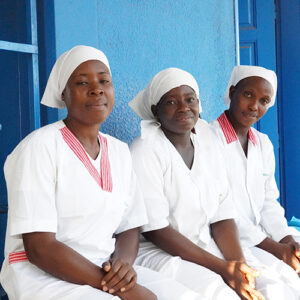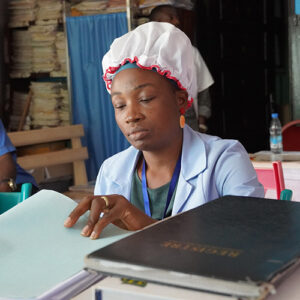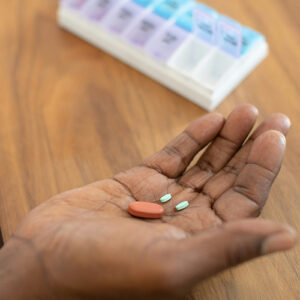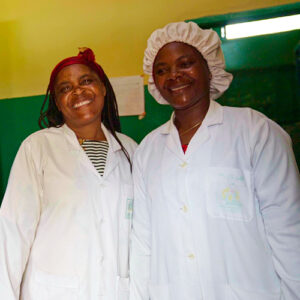MTaPS Commemorates World AMR Week 2023: Partnering to Contain AMR in Multiple Countries

Partnering to Contain AMR in Multiple Countries
Every year the world comes together from November 18-24 to commemorate World AMR Awareness Week, and to raise awareness of the public health crisis of antimicrobial resistance (AMR), a threat to humans, animals, plants, and the environment. Through this year’s theme, “Preventing AMR Together,” the World Health Organization (WHO) calls for collaboration across sectors to preserve the efficacy of critical antimicrobial medicines.
In 2019, it was estimated that almost 5 million deaths were associated with bacterial AMR, including 1.27 million deaths being directly caused by it. Addressing AMR requires a holistic and multi-sectoral approach: the One Health approach. The USAID MTaPS Program—an implementer of USAID’s Global Health Security Agenda (GHSA) goal to fight AMR—partners with multiple countries to contain the rising incidence of AMR.
This year, in commemoration of World AMR Awareness Week, MTaPS highlights recently published thought leadership papers that provide recommendations for action to combat AMR across sectors based on collaborative experience in multiple countries globally.
Together, We Can Contain Antimicrobial Resistance
 This paper, published in April, describes four promising practices for strengthening national antimicrobial resistance containment capacity gleaned from MTaPS’ GHSA-supported experience in collaboration with partners in 13 countries. The findings and actionable recommendations for future investments align with WHO Benchmarks on International Health Regulations Capacities (2019) to guide national, subnational, and facility actions that help raise country AMR containment capacity levels>> Moving from Assessments to Implementation: Promising Practices for Strengthening Antimicrobial Resistance Containment Capacity
This paper, published in April, describes four promising practices for strengthening national antimicrobial resistance containment capacity gleaned from MTaPS’ GHSA-supported experience in collaboration with partners in 13 countries. The findings and actionable recommendations for future investments align with WHO Benchmarks on International Health Regulations Capacities (2019) to guide national, subnational, and facility actions that help raise country AMR containment capacity levels>> Moving from Assessments to Implementation: Promising Practices for Strengthening Antimicrobial Resistance Containment Capacity
Sex and gender data on antimicrobial use is critical to preventing and controlling resistance to antibiotics
 Sex and gender are essential but often neglected factors that impact antimicrobial resistance. The paper recommends the inclusion of these variables in point prevalence surveys (PPS) methodologies for hospital antibiotic use studies to help us understand the pre-hospital risks. Given WHO’s priority to equitably address AMR, all antibiotic PPS survey instruments should be updated to include these data in the PPS methodology, ensuring that sex and gender information are collected and recorded in medical records to increase the efficiency of the AMR response>> Gaps in data collection for sex and gender must be addressed in point prevalence surveys on antibiotic use
Sex and gender are essential but often neglected factors that impact antimicrobial resistance. The paper recommends the inclusion of these variables in point prevalence surveys (PPS) methodologies for hospital antibiotic use studies to help us understand the pre-hospital risks. Given WHO’s priority to equitably address AMR, all antibiotic PPS survey instruments should be updated to include these data in the PPS methodology, ensuring that sex and gender information are collected and recorded in medical records to increase the efficiency of the AMR response>> Gaps in data collection for sex and gender must be addressed in point prevalence surveys on antibiotic use
Identifying and addressing challenges to antimicrobial use surveillance is central to preventing antimicrobial resistance
 In 2020 and 2022, the Tanzania and Uganda team published findings on point prevalence survey (PPS) of antibiotic use in collaboration with Ministry staff and stakeholders. The PPS data contributed to identifying targets for antimicrobial stewardship (AMS), particularly in Uganda, where the AMS work advanced in various health facilities. In 2023, a collaborative effort among the MTaPS team, stakeholders in Tanzania and Uganda, and MTaPS partner, the University of Washington, produced a paper on recommendations based on Tanzania and Uganda’s experiences in identifying and addressing challenges to antimicrobial use surveillance in the human health sector in low- and middle-income countries toward controlling AMR>> Identifying and addressing challenges to antimicrobial use surveillance in the human health sector in low- and middle-income countries: experiences and lessons learned from Tanzania and Uganda
In 2020 and 2022, the Tanzania and Uganda team published findings on point prevalence survey (PPS) of antibiotic use in collaboration with Ministry staff and stakeholders. The PPS data contributed to identifying targets for antimicrobial stewardship (AMS), particularly in Uganda, where the AMS work advanced in various health facilities. In 2023, a collaborative effort among the MTaPS team, stakeholders in Tanzania and Uganda, and MTaPS partner, the University of Washington, produced a paper on recommendations based on Tanzania and Uganda’s experiences in identifying and addressing challenges to antimicrobial use surveillance in the human health sector in low- and middle-income countries toward controlling AMR>> Identifying and addressing challenges to antimicrobial use surveillance in the human health sector in low- and middle-income countries: experiences and lessons learned from Tanzania and Uganda
An appropriate antimicrobial use surveillance system provides crucial data and evidence toward preventing and containing antimicrobial resistance
 What tools are available for antimicrobial use (AMU) surveillance in health facilities? Why and how should low- and middle-income countries adopt a localized and standardized approach, taking into account resource constraints? This paper answers these and other questions, identifying inconsistencies in the interpretation of existing AMU surveillance tools and crucial data fields, such as sex, gender, and pregnancy variables, which were either inaccurately categorized or missing. Drawing on four years of collaborative implementation since the launch of the WHO Point Prevalence Survey methodology in 2018, MTaPS makes recommendations for solutions>> What is the appropriate antimicrobial use surveillance tool at the health facility level for Uganda and other low- and middle-income countries?
What tools are available for antimicrobial use (AMU) surveillance in health facilities? Why and how should low- and middle-income countries adopt a localized and standardized approach, taking into account resource constraints? This paper answers these and other questions, identifying inconsistencies in the interpretation of existing AMU surveillance tools and crucial data fields, such as sex, gender, and pregnancy variables, which were either inaccurately categorized or missing. Drawing on four years of collaborative implementation since the launch of the WHO Point Prevalence Survey methodology in 2018, MTaPS makes recommendations for solutions>> What is the appropriate antimicrobial use surveillance tool at the health facility level for Uganda and other low- and middle-income countries?
A robust antimicrobial stewardship program is a critical facility-level strategy for addressing resistance to antibiotics
 In a partnership with the Ministry of Health Uganda, MTaPS collaborated to analyze MTaPS-supported actions to improve the management of antibiotics using continuous quality improvement to contain the spread of antimicrobial resistance. The overarching finding of the study was that fewer patients received unnecessary antimicrobials because of the interventions>> Development and evaluation of a continuous quality improvement programme for antimicrobial stewardship in six hospitals in Uganda
In a partnership with the Ministry of Health Uganda, MTaPS collaborated to analyze MTaPS-supported actions to improve the management of antibiotics using continuous quality improvement to contain the spread of antimicrobial resistance. The overarching finding of the study was that fewer patients received unnecessary antimicrobials because of the interventions>> Development and evaluation of a continuous quality improvement programme for antimicrobial stewardship in six hospitals in Uganda
Follow our World AMR Awareness Week mini-campaign on LinkedIn, X (previously Twitter), and Facebook.